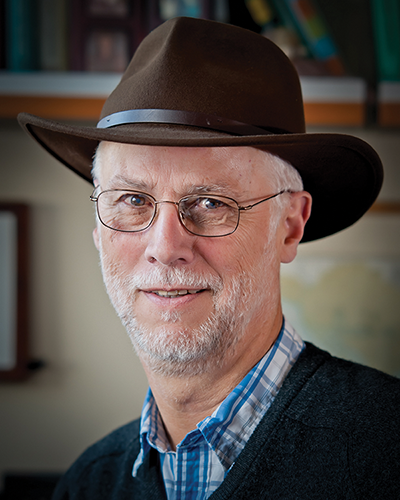 Richard Ladner, professor emeritus at the Allen School and a nationally recognized leader in accessibility research and advocacy, has been recognized with the Strache Leadership Award from the Center on Disabilities at California State University, Northridge. Each year, the center honors an individual who has made a significant and lasting impact through education and research in the area of assistive technology with the Strache Leadership Award, which is named for CSUN’s former Vice President for Student Affairs Fred Strache.
Richard Ladner, professor emeritus at the Allen School and a nationally recognized leader in accessibility research and advocacy, has been recognized with the Strache Leadership Award from the Center on Disabilities at California State University, Northridge. Each year, the center honors an individual who has made a significant and lasting impact through education and research in the area of assistive technology with the Strache Leadership Award, which is named for CSUN’s former Vice President for Student Affairs Fred Strache.
Ladner, who began his career in theory of computation, has been a leading researcher and advocate in the field of accessibility for more than three decades. Examples of his research impact include Tactile Graphics, a project to make figures and diagrams in textbooks accessible to students who are blind and low-vision, and MobileASL, a project to enable deaf people to communicate via sign language over mobile phones that Ladner undertook in collaboration with Electrical Engineering professor Eve Riskin. His latest project is designed to engage blind children in computer programming via an accessible block-based programming language for tablets. Through his work, Ladner has helped establish the University of Washington as a leader in accessible technology — and ignited students’ and colleagues’ interest in accessibility research.
Ladner also has been at the forefront of multiple initiatives to increase access for people with disabilities to computer science education and careers. He serves as the Principal Investigator for two programs funded by the National Science Foundation: the AccessComputing Alliance, which focuses on engaging and supporting students with disabilities to pursue undergraduate and graduate degrees in computing; and AccessCSForAll, an effort that began last year to increase the participation of K-12 students in computer science classes through the provision of accessible curricula and tools. Previously, Ladner directed the Summer Academy for Advancing Deaf and Hard of Hearing in Computing, an intensive educational program aimed at preparing students for majors and careers in computing-related fields.
Ladner’s work previously earned him the Presidential Award for Excellence in Science, Mathematics and Engineering Mentoring (PAESMEM); the Computing Research Association’s A. Nico Habermann Award; the Richard A. Tapia Achievement Award for Scientific Scholarship, Civic Science and Diversifying Computing; the Broadening Participation in Computing Community Award; the ACM CHI Social Impact Award; and the SIGACCESS Award for Outstanding Contributions to Computing and Accessibility. He will be formally honored with the Strache Leadership Award as part of the CSUN Assistive Technology Conference — the largest international conference focused on the field of assistive technology — in San Diego, California this week. Previous recipients of the award include Ladner’s friend and colleague, Sheryl Burgstahler, who was recognized in 2012 for her work as founder and director of the UW’s DO-IT Center and co-principal investigator with Ladner of the AccessComputing Alliance.
Congratulations, Richard!

